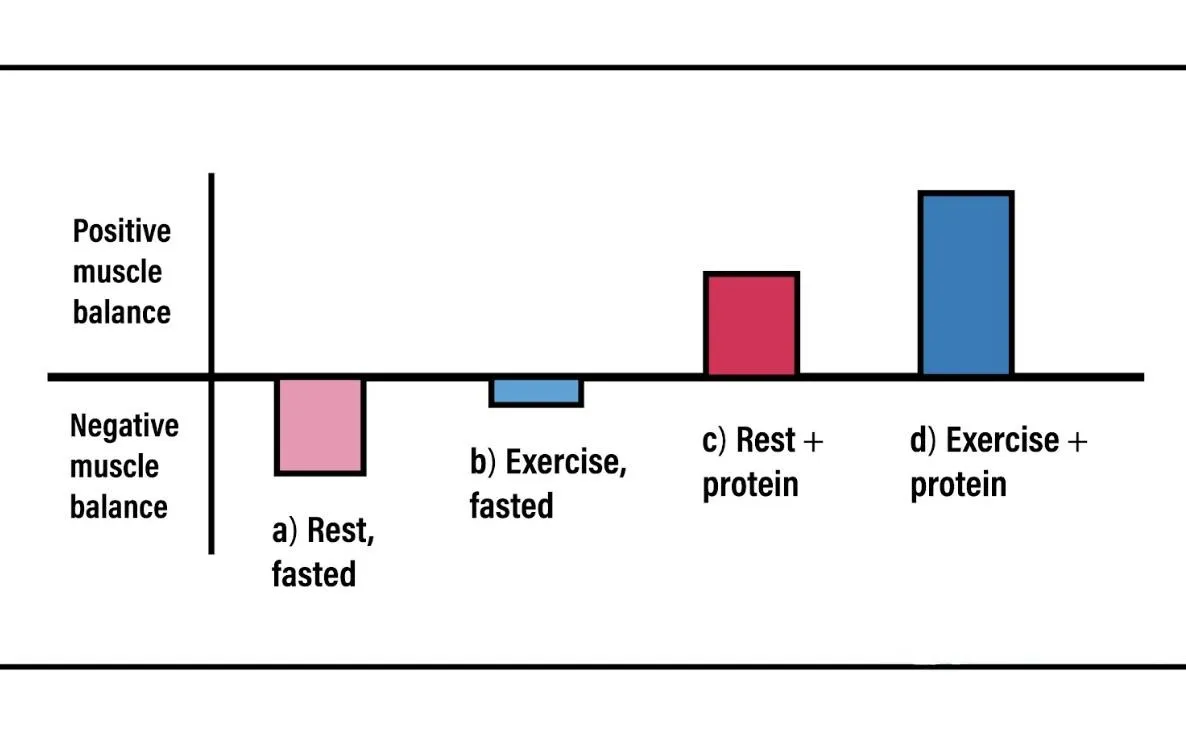
Fasted Exercise Isn't The Fat-Loss Hack You Think
Fasted exercise has been hyped as a fat-loss hack, promising to tap into fat stores by training after an overnight fast. Does it work?
Science says fasted exercise isn’t the game-changer you might think. It could even slow your progress.
Why Fasted Exercise Sounds Promising
Whether it’s jogging or lifting weights, this “fat-burning boost” has made fasted workouts a go-to for lots of people.
The logic is this: when you exercise in a fasted state (like first thing in the morning before breakfast), your body has low glycogen and insulin levels, so it burns more fat for fuel.
Here’s the catch: fat loss isn’t just about calories burned during your workout. It’s about total calorie balance--and exercise doesn't burn a lot of calories!
Fasted Cardio
Fasted cardio, like a morning run before eating, burns a higher percentage of fat during the session.
Research shows it doesn’t lead to more fat loss overall:
No Extra Fat Loss: Women doing fasted or fed cardio lost the same amount of fat over 4 weeks when calories were controlled.
Body’s Balancing Act: Your body compensates post-workout by burning more carbs or less fat, leveling out fat loss.
Performance Edge: Eating before cardio (like a small carb snack) improves high intensity exercise output, helping increase caloric burn.
Fasted Weight Training
Lifting weights without eating first is no better than fed training and could harm your muscle-building goals.
Same Fat Loss:Fasted and fed weight training led to similar fat loss when calories are equal but the fasted group gained less muscle.
Lower Energy: Without pre-workout fuel, you might lift less weight or do fewer reps, limiting calorie burnandmuscle stimulus.
Why Fasted Training Falls Short
Fasted exercise often sabotages the two things that drive fat loss:calorie deficitandconsistent, high-quality training.
Fasted exercise can backfire for fat-loss goals:
Reduced Workout Quality: Low energy from fasting can lead to lower intensity or shorter sessions, burning fewer calories overall.
Increased Hunger: Exercising fasted can lead to higher post-workout hunger, potentially causing you to overeat later and wipe out your calorie deficit.
Practical Challenges: Fatigue, dizziness, and low energy make it harder to stick with your routine.
To lose fat and keep muscle...
Prioritize a calorie deficit: Fat loss depends on consuming fewer calories than burned, whether through diet, exercise, or both. Fasted or fed, this is non-negotiable.
Fuel your workouts: A small meal 1-2 hours before your workout (20g protein and 30g carbs) will boost your energy, allowing you to push harder,burn more calories, andstimulate more muscle growth.
Employ cardio and weights: Combine cardio with resistance training (not at the same time!) to maximize fat loss and muscle preservation. Fed-state training optimizes both.
The best workout is one in which you have the energy to give it your all!